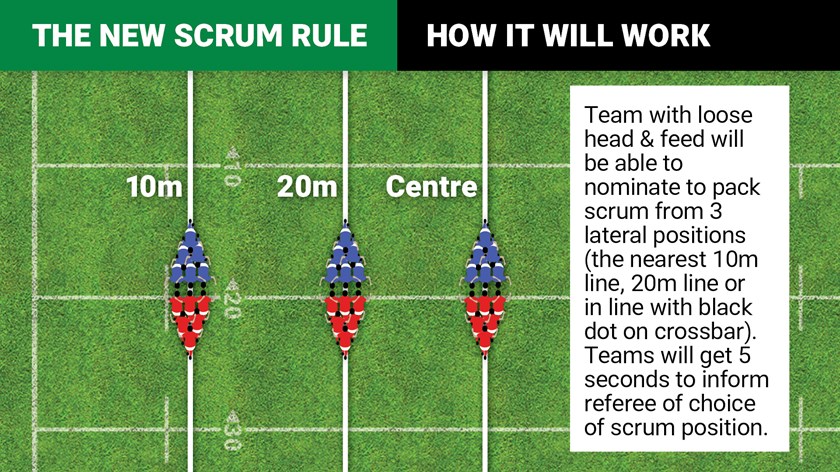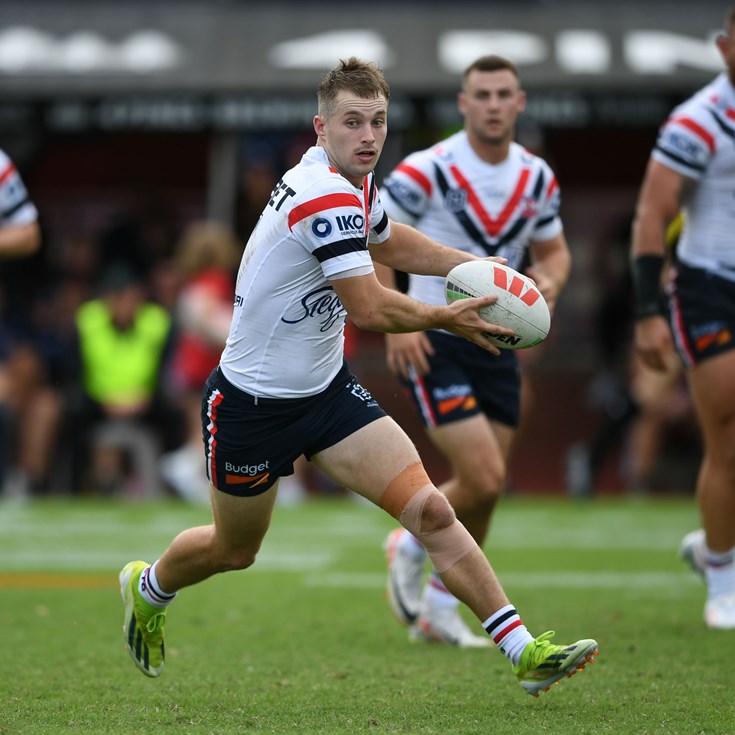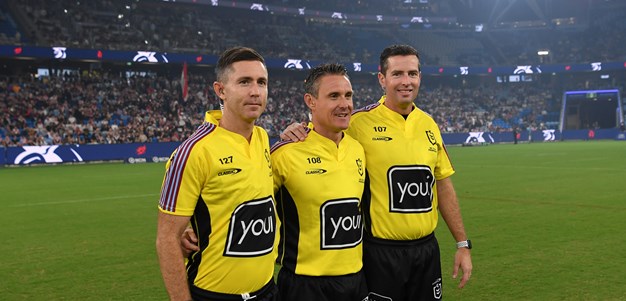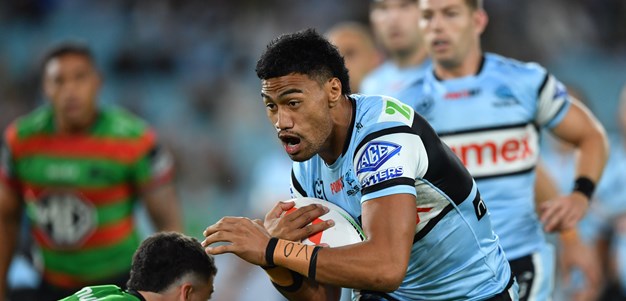The NRL has announced a range of rule changes for the 2020 season relating to scrums, trainers and tackling players off the ground while also introducing a 20/40 kick.
NRL CEO Todd Greenberg and head of football elite competitions Graham Annesley announced the changes on Friday after the moves were approved by the ARL Commission on Thursday.
The Commission also endorsed the introduction of a general-play "challenge" system and NRL management will work through all the operational details with a final report to be provided to the commission in February.
It is likely teams would receive one challenge per match – they would get another challenge if their first one was upheld but lose the option if it was unsuccessful.
The 20/40 kick will work in a similar fashion to the existing 40/20 rule.
A team in possession will earn another set via a tap-kick if they kick the ball from within their own 20-metre zone and find touch within the opposing team's 40-metre line.
Under the change to the scrum rule, the team feeding the ball will have the option of setting the scrum at three locations – 10 metres or 20 metres from the sideline or in the centre of the field, in alignment with the black dot on the crossbar.
Teams will be given five seconds to inform the referee of their choice of scrum position.

The NRL has announced a change to the "mutual infringement" rule regarding incidents when the ball strikes a trainer or the referee. Previously, the loose head and feed would be awarded to whichever team "the attacking team (i.e. with territorial advantage)".
Under the new rule, the referee will be able to replay the previous play-the-ball in the event of play being irregularly affected by circumstances out of the players' control.
The act of tackling a player in mid-air will be banned whether the player initiating contact is the attacking player or the defending player, in line with the current international laws of the game.
The Commission agreed that further limitations should be placed on the time orange and blue shirt trainers could spend on the field. The specific constraints will be finalised prior to the February Commission meeting.
Additionally, the Commission recommended a trial be undertaken in the second-tier competitions to assess the impact of teams being required to use six players in a scrum even when down to 12 players.
There will be no changes to the scoring system for wins in extra time, which was discussed in the lead-up to the Commission meeting.
The approved changes followed discussion by the NRL Competition Committee and the coaches last month.
Greenberg said ensuring the quality of the sport as a spectacle was paramount to the thinking behind the changes.
"We are constantly looking at ways to ensure the game is easier to officiate, and is also innovative and unpredictable," Greenberg said.
We are constantly looking at ways to ensure the game is easier to officiate.
Todd Greenberg
"We certainly feel these changes will have a positive impact on the sport."
Annesley said the NRL had "taken advice and feedback from the key stakeholders of the game in order to make these decisions".
"There has been significant engagement with our fans, the Competition Committee as well as through the NRL coaches, the clubs, and the RLPA.
"Over 20,000 fans responded to an end-of-season survey, more than tripling the response to the 2018 online survey.
"We are constantly looking to evolve, and we believe these changes will lead to a more entertaining game for fans.
"The Competition Committee and the coaches all had the game as a spectacle at the heart of their discussions, along with other key considerations including player wellbeing and the impact on the sport at all levels, and that clearly aligns with the Commission's overall vision for the sport."



